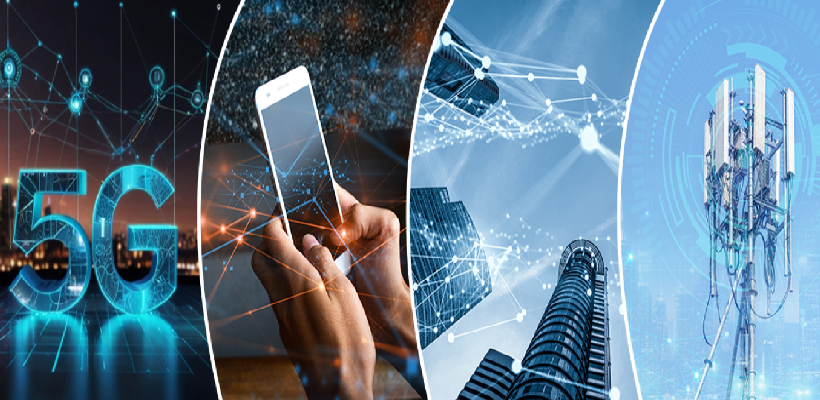
Mobile technology in 2024 is shaping the future of connectivity like never before. With advancements in 5G, artificial intelligence, and smart devices, our mobile experience is expanding beyond traditional communication. From reimagined smartphones to immersive virtual experiences and the rise of the Internet of Things (IoT), mobile technology is transforming how we interact, work, and experience the world around us. Here’s a closer look at the innovations driving this change and how they’re influencing the future of connectivity.
1. The 5G Expansion and Beyond
The rollout of 5G technology has been a game-changer, enabling faster and more reliable internet speeds, lower latency, and increased network capacity. In 2024, 5G coverage is more widespread than ever, and it’s opening up new opportunities across industries. For mobile users, this means more seamless streaming, faster downloads, and smoother video conferencing, which has become integral for both personal and professional interactions.
Beyond mobile phones, 5G is empowering advancements in the IoT sector, where connected devices can communicate and share data at unprecedented speeds. Smart cities, autonomous vehicles, and smart healthcare solutions all benefit from 5G’s capabilities. The move toward 5G is also paving the way for the initial discussions around 6G technology, which promises even faster data rates and could revolutionize applications in fields like virtual reality, robotics, and advanced AI.
2. AI-Powered Mobile Experiences
Artificial intelligence is a cornerstone of mobile technology in 2024, enhancing everything from personalized user experiences to predictive analytics and efficient device management. Modern smartphones now incorporate AI to optimize battery life, enhance camera quality, and offer personalized app recommendations. Virtual assistants like Siri, Google Assistant, and Alexa are getting smarter, making it easier to manage tasks, schedule appointments, and even control smart home devices through simple voice commands.
AI is also improving cybersecurity on mobile devices by detecting and preventing potential threats in real time. AI-powered algorithms can detect unusual activity, phishing attempts, or malware, alerting users to potential risks before they become issues. This level of security is crucial as our mobile devices store more personal and financial information than ever before.
For businesses, AI-driven mobile analytics provides valuable insights into user behavior, allowing companies to create more targeted marketing strategies and improve customer engagement. Personalized recommendations and AI-driven customer service bots are becoming commonplace, creating a more streamlined and satisfying experience for users.
3. The Rise of Augmented Reality (AR) and Virtual Reality (VR)
Augmented reality and virtual reality are no longer just emerging technologies—they’re becoming integral parts of our mobile experience. In 2024, AR and VR are being used for a range of applications, from immersive gaming experiences to virtual shopping and training simulations. Social media platforms like Snapchat and Instagram have popularized AR filters, and companies are leveraging AR to allow users to “try on” clothes, glasses, or furniture from their mobile devices.
VR headsets are also becoming more accessible, offering high-definition immersive experiences for gaming, education, and even virtual meetings. These technologies are expected to expand further as they integrate with 5G and AI capabilities, making AR and VR experiences more realistic and accessible to the average user. Mobile AR and VR are also being used in industries like real estate, healthcare, and education, providing virtual tours, patient education, and hands-on training without the need for physical presence.
4. Internet of Things (IoT) and Smart Device Integration
Mobile technology is at the heart of the Internet of Things (IoT), enabling seamless integration with smart devices in our homes, workplaces, and public spaces. In 2024, mobile devices are the control centers for managing smart home systems, from adjusting thermostats and controlling lights to monitoring home security. The ability to manage these tasks remotely via a smartphone is enhancing convenience and efficiency in daily life.
Wearable devices like smartwatches, fitness trackers, and even smart clothing are also becoming more sophisticated. These devices now monitor a range of health metrics, such as heart rate, blood pressure, and sleep quality, providing real-time insights and encouraging healthier lifestyle choices. Mobile integration allows users to track and analyze this data on their smartphones, making health management more accessible and personalized than ever before.
For businesses, IoT devices provide opportunities to streamline operations and enhance customer experiences. Retail stores are using IoT to manage inventory, while restaurants are using it to streamline food ordering and delivery. With mobile technology as the primary interface, IoT is creating smarter, more connected environments that enhance productivity and convenience.
5. Enhanced Mobile Security and Privacy
As mobile technology becomes more integral to our daily lives, security and privacy are top priorities. In 2024, mobile devices are equipped with enhanced security features, including biometric authentication, such as facial recognition and fingerprint scanning, and encrypted messaging services. With mobile payment apps and digital wallets gaining popularity, these security measures help protect sensitive financial information.
Moreover, regulatory changes and increased awareness about data privacy are prompting companies to prioritize user privacy. Many devices now allow users to control data-sharing permissions more easily, putting privacy back into the hands of consumers. Mobile technology is adapting to these needs by implementing more stringent data protection measures, ensuring that users can enjoy the benefits of connectivity without compromising security.
6. The Future of Mobile Connectivity
Mobile technology in 2024 is not only enhancing our current connectivity but also laying the groundwork for a more integrated and automated future. As advancements in 5G, AI, AR/VR, IoT, and security continue to evolve, mobile devices will become more than just communication tools—they will act as central hubs that manage and enhance our lives.
As we look ahead, the possibilities for mobile technology are endless, promising a future where connectivity is seamless, personalized, and secure. For individuals and businesses alike, embracing these advancements will be key to staying connected and competitive in a rapidly evolving digital landscape.